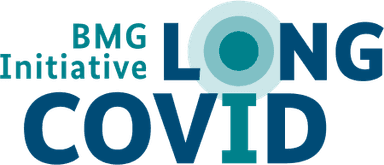Note: The following text is a guest article. They reflect the personal views of the author. The article is not an expression of opinion by the Federal Ministry of Health.
Guest article: Dr. med. Andreas Gassen
In his guest article, Dr Andreas Gassen, chairman of the board of the National Association of Statutory Health Insurance Physicians (KBV), highlights the special importance of general practitioners and specialists in private practice as the central points of contact for patients with post-COVID symptoms.

Post-COVID: Together for custom-fit care
During the pandemic, 19 out of 20 coronavirus patients were treated in Germany's practices, more than 35 million PCR tests were performed on people with symptoms of the disease alone (as of the end of June 2022), and 88 million vaccinations were administered (by April 2022). All driven by the commitment and concerned desire to provide good care to patients, and to avoid complications and late effects of a coronavirus infection. After all, post-COVID is a very big burden for patients in its severe form, and can enormously impair the quality of life. Here, too, the general practitioners and specialists in private practice are the initial points of contact for those affected.
Registered doctors as central points of contact
Since 1 January 2021, post-COVID patients can be identified in the accounting data of medical practices. Initial analyses of the accounting data show that so far, most of those affected (approx. 370,000) were registered in the second quarter of 2022; since then, the number has been trending downwards. In view of the omicron wave, which led to sharply rising infection figures, this is an encouraging development for the time being, but we will continue to monitor it. In the fourth quarter of 2022 - the period from which the most recent figures available come - around 335,000 people with a post-COVID diagnosis were treated in SHI-accredited practices. 97 per cent of them had already received medical treatment in the previous year due to other chronic diseases. These include, for example, back pain, depression, asthma and obesity. Family doctors are usually the first and central contact persons for those affected: 71 per cent of the post-COVID patients were cared for in family doctor practices, while 21 per cent were cared for by specialists in internal medicine. Other specialists mainly took care of the symptom-related therapy, if necessary at that stage.
Exchanges between science and care
The treatment is currently provided in a symptom-related manner. Therefore, it is not only important to strengthen research on post-COVID, but also to ensure that the knowledge gained is quickly transferred to standard care. Conversely, data from care must be available to researchers. On this basis, there is a need for an intensive interdisciplinary exchange of knowledge and experience in order to improve the care of those affected, and to be able to provide patients with the care offerings that are suitable for them in each case.
Vita
Dr Andreas Gassen is a medical specialist in orthopaedics, accident surgery and rheumatology, and has been the chairman of the board of the National Association of Statutory Health Insurance Physicians (KBV) since March 2014. The KBV represents the interests of the more than 185,000 physicians and psychotherapists participating in SHI-accredited care at the federal level and negotiates, among other things, the range of services provided by the statutory health insurance system within the framework of self-administration. It is the umbrella organisation of the 17 Associations of Statutory Health Insurance Physicians (AHIPs), which secure out-patient medical care for 73 million legally insured people in Germany.
